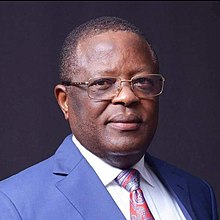By Joe Brock
 ABUJA (Reuters) – Nigeria’s landmark energy bill could revive Africa’s biggest oil industry and improve President Goodluck Jonathan’s reputation, but rebellious lawmakers will seriously test his resolve to push it through in its present form.
ABUJA (Reuters) – Nigeria’s landmark energy bill could revive Africa’s biggest oil industry and improve President Goodluck Jonathan’s reputation, but rebellious lawmakers will seriously test his resolve to push it through in its present form.
The Petroleum Industry Bill (PIB) would bring root and branch reform to an industry that produces 80 percent of government revenues but has been plagued by corruption and mismanagement for decades.
The bill has been stuck in parliament for more than five years, casting a cloud of regulatory uncertainty over the sector and driving billions of dollars of investment away to rival oil producing nations. If the uncertainty is left unresolved, oil revenues could soon start falling.
The wide-ranging bill would change working terms for oil majors like Shell and Exxon and partly privatise the national oil firm, but has been held up as government and oil firms argued over terms.
Nigeria is among the world’s top ten oil exporters and a key supplier to the United States, China and Europe because its light, sweet crude is ideal for making motor fuel. It is home to the world’s seventh-largest gas reserves and has more proven oil in the ground than the rest of sub-Saharan Africa combined.
If Jonathan can pass the bill, it could help restore a presidency battered by an Islamist insurgency in the north, an abortive attempt to remove a popular fuel subsidy and a raft of corruption scandals, since he won an election last year.
“As a president who came to power with a landmark reform agenda, the passage and implementation of the PIB will provide a key gauge of Jonathan’s performance in office,” said Roddy Barclay, West Africa analyst at Control Risks, a consultancy.
“Having suffered numerous damaging public setbacks in recent months, making headway on this key piece of legislation would go some way to restoring his international standing.”
REBELLIOUS PARLIAMENT
Jonathan’s explicit endorsement of the bill gives it a better chance of passing than previous versions, but his increasingly tense relationship with parliament means he is likely to have to concede ground or face embarrassing delays.
Parliament returns from recess to debate the PIB in mid-September but several lawmakers have told Reuters that the PIB won’t get an easy ride and they intend on making major changes.
“We will not be subjected to pressure to pass the PIB. It will not get a speedy passage but a thorough passage,” Zakari Mohammed, spokesman for the lower house, told Reuters.
Jonathan’s team had made it clear they are expecting a swift passage of a draft he has signed off on.
The president and his close ally Oil Minister Diezani Alison-Madueke will be given greater powers in the latest draft, which is likely to be a sticking point with many lawmakers who believe the executive arm of government is already too dominant.
“We’ve seen the powers given to the oil minister in the PIB and there is no way we’re going to allow our heritage to be handed over to any individual,” one member of the House of Representatives told Reuters, asking not to be named.
Relations between parliament and Jonathan’s administration have soured this year, as rows flared up over the budget and several parliamentary probes into oil corruption.
“We want this to pass, and it will, but not just the way the president and the oil minister want. No way,” the lawmaker said.
There is however always the possibility lawmakers could improve transparency in the bill, which analysts say falls far short of what was hoped.
Besides giving powers to the oil minister, Jonathan’s committee also added a clause that would allow the president to give oil licenses out at his own discretion, a backward step parliament is likely to reverse.
“This unfavourable sentiment towards the president and oil minister may actually be positive towards giving Nigeria a reasonably acceptable PIB,” Clement Nwankwo, director at the Policy and Legal Advocacy Centre in Abuja, said.
Nwankwo, who works closely with the national assembly, believes the PIB won’t pass for around 9 months.
Whatever the bill ends up looking like, passing it would at least end the uncertainty which has prevented Nigeria from holding an oil licensing round for five years.
It may also attract investment into natural gas, helping end chronic power shortages. That would provide the kind of legacy Jonathan indicated he wanted before winning last year’s vote.
Culled from af.reuters.com http://af.reuters.com/article/investingNews/idAFJOE87503S20120806?sp=true



